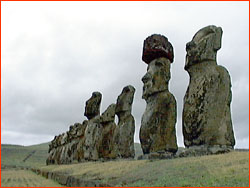“Never underestimate the educational value of eccentricity” – a slightly reworked line from Biloxi Blues (motion picture starring Matthew Broderick, 1988). This sentence represents my basic sentiments towards teaching, pedagogy, higher education, and coexistence in general. Not that I consider myself particularly eccentric – but ‘eccentricity’ is intellectually productive in its tension with ‘conformity’ – that which invariably sneaks into our doings, beings, and thought-processes.
In this sense, a ‘text’- a piece of literature, philosophical-theoretical perspective, image, or film, which we investigate is such an ‘eccentricity.’ It manifests its own account of a norm-system whether we find it thematically targeted in the text itself, or in ourselves as we react to the text. Here are two examples from well-known texts: apart from it being a lovely love-story, Pride and Prejudice should also be read as a multi-facetted revolt against ingrown cultural norms, the same dynamic we often see in the rebellions of eccentric characters depicted in Icelandic sagas. In this meaning of ‘eccentricity’ those works embody contentious representations of social life for us to appropriate critically as we attempt to understand ourselves. Texts and images inevitably invite us to discuss important issues that surround us: gender-relations, cultural values, coexistence, sexuality, other value-systems, etc.
Professionally, I do not subscribe to any particular epistemological orientation. Post-modernism, structuralism, feminism, historicism, Darwinism – there are intriguing elements in them all. Most of them, of course, need a serious refresher. But bridging their insights is a stimulating, critical task. It is hard not to acknowledge the insights of what we refer to as 'Darwinism' as the platform from which we must structure our thinking. Ignoring it comes with too great an intellectual cost: the direct or indirect embrace of transcendental, supernatural speculation.
Reading and writing analyses and interpretations are therefore acts of critical thinking. They enable us to understand ourselves and to engage the contexts we seek to reveal. I value an inductive, student-centered method based in students' inquiry but guided by my studied sense of problems inherent in the material. Back and forth. In that manner we start with the text and our critical reactions to it no matter how 'strange' it may seem. Students will consider the perspective of ‘eccentricity’ as they read, take as little as possible for granted, and to be ready to let texts and thoughts lead them into discovery when texts contrast their own sense of value.
Integrating
technology in course and classroom activities is one way to engage the material. A psychological or sociological issue
may be addressed by taking a literary text from an earlier time
period and complementing it with a contemporary film or documentary. Different genres
together illuminate problems and answers. Students give
formal multimedia presentations (in our informal classroom environment)
which promotes their analytical and pedagogical skills. Weekly reading responses are also an effective
method for students to structure the results of their reading and to prepare
for classroom interaction.
In short, the classroom is about setting people free in intellectual and
social self-discovery. It promotes communication skills and knowledge. An
ambitious, and not at all straight-forward and uncomplicated task.
__________________________
